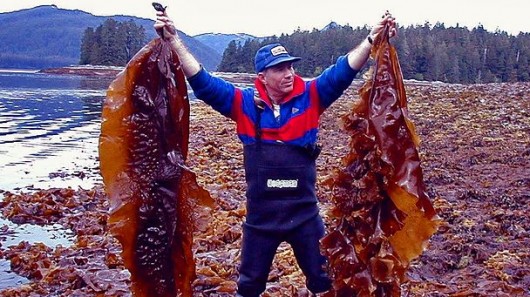Biofuels may indeed offer a greener alternative to fossil fuels, but they do raise at least one concern – crops grown as biofuel feedstock could take up farmland and use water that would otherwise be used to grow crops for much-needed food. That's why some scientists have looked to seaweed as a feedstock. Kelp is particularly attractive, in that it's abundant and grows extremely quickly, although its fuel yields haven't been particularly impressive. That could be about to change, however, thanks to a newly-developed hydrothermal process.
Khanh-Quang Tran, an associate professor at the Norwegian University of Science and Technology (NTNU), has been experimenting with heating kelp very quickly. More specifically, Tran and his team put a slurry of kelp biomass and water in sealed drinking-straw-like vessels known as quartz capillary reactors, then heated those reactors to 350º C (662º F) at a rate of 585º C (1,085º F) per minute, and held them at that temperature for 15 minutes.
A variation on a process known as hydrothermal liquefaction, the technique resulted in 79 percent of the biomass being converted into bio-oil. A previous UK study also explored the hydrothermal liquefaction of the same type of kelp (Laminaria saccharina), although it didn't incorporate the rapid heating aspect. In that case, the yield was only 19 percent and the oil was harder to refine, plus the addition of a chemical catalyst was required. No catalyst is necessary with the NTNU system.
Although it has so far only been demonstrated on a small scale, Tran has plans to test his process in a large-scale reactor, and is looking for industrial partners to help finance the research. He also believes that with some more finessing, he can increase the yield beyond 79 percent – it's worth noting that the net energy gain would presumably be somewhere below that number, as a significant amount of energy would be consumed generating the required heat.
Keeping that in mind, scientists at California's Bio Architecture Lab are taking another approach to seaweed-derived biofuel. They've engineered a microbe that can extract all the major sugars in seaweed, and convert them into renewable fuels and chemicals.
A paper on the Norwegian project was recently published in the journal Algal Research.
Source: NTNU
Copyright © Gizmag 2003 - 2014
